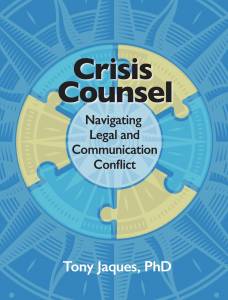What do you do when your “secret plan” becomes front-page news?
by Tony Jaques, Director of Issue Outcomes Pty Ltd, for people who work in issue and crisis management
A secret issue strategy may sound great when it’s plotted around the board table. But it maybe doesn’t look quite so clever when it’s exposed in the media. So, what do you do when your “secret plan” becomes front-page news?
That’s what happened recently when 124,000 internal documents from Uber revealed how the company “flouted laws, duped police, exploited violence against drivers, and secretly lobbied governments during its aggressive global expansion.”
The unprecedented leak by Uber’s former chief lobbyist for Europe, covered the period 2013-2017 when the company was trying to foist its cab-hailing service on sometimes reluctant cities around the world, where taxi drivers feared for their livelihood.
One of the largest recent revelations of a covert corporate strategy, it was exposed only when the whistle-blower had a belated attack of conscience and came forward six years after he left Uber.
Uber was not the only one who wrote down a “secret plan” that got exposed
It’s a stark reminder of one of the core maxims of politics and business: Nothing remains secret forever. And one of the core principles of issue management: Don’t plan or write down anything you wouldn’t want to see in the headlines, especially when it suggests questionable legality or shady ethics.
The revelation of “secret plans” is certainly not new, and sometimes it takes years for such schemes to surface. Consider the detailed strategy by the American sugar industry in the 1960s to combat Federal research into the role of sugar in dental decay. The scheme remained hidden until 2015 when it came to light with the discovery of a treasure trove of documents from a former advisor to the industry.
Similarly, who could ignore the decades-long strategy of the tobacco industry to protect their unhealthy product? It was formally confirmed only in 1998 by the release of over six million previously undisclosed documents extending to about 35 million pages of evidence.
More recent was the “secret clubs strategy plan” developed for Clubs Queensland to oppose the Government’s efforts to limit gambling on poker machines. Amazingly, the entire strategy was accidentally posted on the organisation’s own website in 2011, where it was spotted by an eagle-eyed journalist.
Sadly, the same problem continues. Just last month it was reported that the Australian car industry had launched a “secret emissions plan” to slow down the transition to electric vehicles.
Can Uber’s Crisis Management Plan Bury Their Secret Plan?
So, how did Uber respond to the recent revelation of their past wrongdoing? It was classic by-the-numbers damage control.
Step One: Minimise the significance of the misconduct. “We have not and will not make excuses for past behaviour that is clearly not in line with our present values,” the company said, meanwhile downplaying their transgressions as “mistakes and missteps” under the previous CEO.
Step Two: Say that was then but we are different now. Uber claimed it had been “transformed” under its new CEO. “We ask the public to judge us by what we’ve done over the last five years, and what we will do in years to come.”
Step Three: Undermine the credibility and motivation of the whistle-blower. The company said the former lobbyist “had only praise for Uber when he left the company six years ago … Since then, however (he) has been in litigation against the company in an attempt, among other things, to get paid a bonus he claimed to be owed for his work at Uber. That lawsuit recently ended with him being paid €550,000. It is noteworthy that he felt compelled to ‘blow the whistle’ only after his cheque cleared.”
What we can learn about Uber’s secret plan and failed apology
Equally noteworthy, perhaps, is that nowhere in its response did Uber apologise or express any remorse for what it admitted was previous bad behaviour. Nor did former CEO Travis Kalanick in his lengthy reply. And these carefully crafted defences failed to explain why such dubious activities were permitted and encouraged in the first place.
Issue management is a proven effective tool for driving towards openly stated objectives. But a key lesson here is that legitimate tools can sometimes be used for illegitimate purposes.
A Parting Thought
There are no secrets that time does not reveal
Jean Racine (1639-1699)
Tony Jaques is Director of Issue Outcomes Pty Ltd, for people who work in issue and crisis management
Learn more about Reputation Risk, CEO apologies, and Crisis communication in Tony Jaques’ new book, Crisis Counsel: Navigating Legal and Communication Conflict.
“Crisis Counsel confirms Tony Jacques position as one of the industry’s foremost experts on issues and crisis management. In addressing the complex interactions between legal and communication crisis responses Dr. Jacques provides riveting case studies and practical advice. It highlights the financial and reputation risks of not effectively integrating communications and legal counsel. It should be on every communications practitioner’s reading list and companies should insist their in-house and external legal counsellors read it.” – Noel Turnbull, Former Chair of Turnbull Porter Novelli, Adjunct Professor, RMIT University.
“For senior managers who find themselves in the C-suite for the first time, Crisis Counsel should be mandatory reading. Such specific legal and communications provocations are not covered in university management courses, and the introduction is replete with illuminating case studies and key takeaways. The author provides sage advice for Chief Executives who must ultimately make a decision based on what they think is the right thing to do; often under pressure. Crisis team leaders and team members will find this book equally of value, as the more you know about it, the better you and the team will be.” – Jim Truscott, Director, Jim Truscott & Associates Pty Ltd, Perth, Australia
“For far too long, the role of lawyers in crisis management has been neglected. If discussed at all, it is often in negative terms. Tony Jaques adjusts this picture in masterly, yet eminently readable terms. His comprehensive discussion of apology in crisis management is likely to be a go-to source for years to come. This is a welcome book for anyone interested in how crisis-confronted corporations (and other organizations, too) can navigate the tricky legal waters of communicating under fire. For university teachers like me, it’s a rich source of well-researched case studies. A gem!” – Chris Galloway, PhD, Head of Public Relations, Massey University of New Zealand

